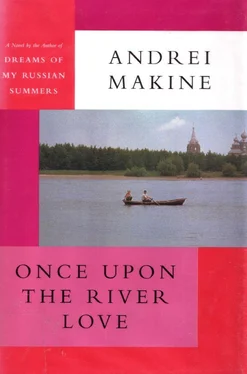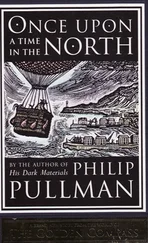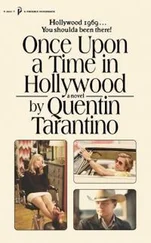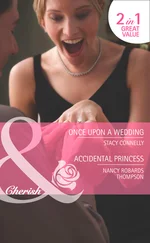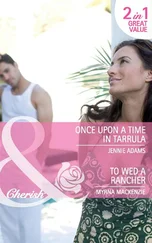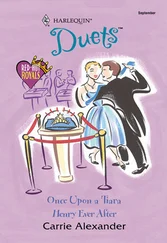For he, too, saw the six-thirty performance as much more than a simple burlesque comedy…
On that spring day long ago when his body had been crushed by the ice floes in the thaw, his child's eyes had undergone a change of vision. In that instant Utkin had acquired a particular view of things such as only extreme pain or pleasure can bestow. At these moments we can observe ourselves – from a distance – as a stranger. A stranger unrecognizable in his overwhelming pain or in the spasms of extreme pleasure. For a few seconds we sustain this division into two…
Utkin had seen himself that way. Against the pale wall of a hospital room. His suffering was so great that he was on the brink of asking himself: "But who is he, this thin little fellow, moaning and shivering in his plaster shell?" Yes, it was very early, at the age of eleven, that he experienced this perception. The maimed body crying out, suffering; and alongside it, it's hard to know exactly where, the detached, calm scrutiny. A bitter and serene presence. Like a bright autumn day, with the penetrating smell of dead leaves. Utkin knew this presence was also himself: a part of him. Perhaps the most important part. In any case, the most free. He could not have expressed the significance to himself of this division into two. But intuitively he perceived within him the tonality of that imaginary autumn moment…
It was enough to close your eyes, put yourself in tune with the low sun gleaming in the yellow leaves; with the pure scent of the forest; with the limpid air… and you could pose the question, calm, disinterested: "But who is he, that little fellow dragging his lame leg along, pointing one shoulder toward the sky?"
Utkin loved to enter into that day which he had never seen, to dwell there amid the unknown trees with broad indented leaves, yellow and red, such as were not to be found in the taiga. To peer through this sun-drenched foliage at the little fellow as he limped along, his head bowed under the snow squalls…
The mystery of Utkin… The crux of it was that the huge triangle of ice that had suddenly become detached from the banks of the mighty river had left him enough time to realize what was happening. He had time to be aware of the gawking crowd, which drew back when they detected the ominous creaking; time to hear their shouts. And to be afraid. And to understand that he was afraid. And to try to save himself without making the human herd laugh at him as he jumped. And to realize that it was stupid to care about the laughter of the others. And to think: This is me, yes, this really is me; I am alone on this ice, which is breaking up, overturning into the flood; this is me; that's the sun; it is spring; I'm afraid.
Like a crystal that is marked with the incrustations of impurities, his grief would always retain this patina of feverish and banal thoughts. They would be engraved in the crystal, in its transparency of frozen tears.
The river was too powerful, its breathing was too slow, even at the moment of breakup, for the calamity to be sudden. The boy's eyes experienced it as if in slow motion. The man who risked being crushed by the ice himself and grabbed Utkin cried out cheerfully: "Just look at this drowned duckling! A bit further and he'd have gone in the drink… Look, he's a regular duckling!"
He went on, uttering little laughs, so as to hide his own fear and reassure the gawking crowd. Utkin, who at this moment was becoming Utkin the Duckling, was sitting on the snow, hunched into a damp ball. He looked at the man laughing and wiping his raw hands on his pants. He looked at him with his blurred eye, benefiting from the last moments before the pain swept over him. In an inexpressible premonition, he sensed that this laughter already belonged to quite another period of his life. Likewise the encouraging remarks from the onlookers, as they wondered whether an ambulance should be called or if the Duckling would recover unaided, after drying himself and drinking some hot tea. The sun, too, was a sun from other days. Like the beauty of the spring. And this nickname he had just been given – Utkin – had been given to a being who no longer existed: a boy like any other, who had come to look at the thaw on this very ordinary morning of his life…
And when, suddenly, the snow turned quite black, when the sun began to resonate and quiver and to penetrate into the burning mass that was his body, when the furrows of the first waves of pain began to lash his face, Utkin for the first time heard that distant voice: "But who is he, that little fellow shouting with pain, spitting up blood from his crushed lungs and twitching in the melted snow like a young bird with broken wings?"
The fact that the calamity had occurred without haste, in rhythm with the mighty river and the immensity of the ice blocks, impelled Utkin toward a reflection that was strange and very remote from any idea he had had as a child. He began to doubt the reality of everything that surrounded him. To doubt reality itself…
This doubt arose on the day when they took him home from the hospital. Utkin was sitting in the room in their izba, a very clean room filled with friendly objects, each of which evoked faint echoes of memory, a room that had the gentle tonality of his mother's presence. His mother brought a kettle from the kitchen, placed two cups on the table, made the tea. And Utkin already knew that his life would never again be the same. That from now on the world would come to meet him, mimicking the lunges of his limping gait. That the whirligig of his schoolfellows' games would always fling him away from the center toward the periphery, toward inaction. Toward exclusion. Toward nonexistence. He knew that his mother would always have that assumed intonation in her voice and that somber glint of despair in her eyes, which no tenderness would be able to hide.
Once more he recalled that slow-motion calamity – the weighty and majestic advance of the ice floes, their titanic collision, the deafening sound of the impact, the piling up of the enormous fragments, revealing blocks of a greenish transparency, more than a yard thick. With infallible precision, his memory played back the syncopated sequence of his thoughts. Standing on the triangle of ice, scrabbling to reach an impossible equilibrium, he was afraid of others laughing at him… And it was no doubt this fear of ridicule that made him clumsy…
Yes, it had all turned on so little. If he had been a trifle quicker, slightly less embarrassed by the stares of the crowd massed on the riverbank, things would not have changed. If he had drawn back from the water's edge by a couple of inches, the tea he was about to drink with his mother could have had quite a different taste, and the spring day outside the windows quite a different meaning. Yes, reality would not have changed.
Dumbfounded, he was discovering that the solid, visible world regulated by adults who knew everything was suddenly proving to be fragile, improbable. A couple of inches more, a few mocking looks received, and you find yourself in a quite different dimension. in another life. A life where the comrades of yesterday run away and leave you limping in the melting snow, where your mother makes a superhuman effort to smile, where little by little people get used to the fact that this is how you are, and fix you once and for all with this new appearance.
This universe, suddenly uncertain, terrified him. But sometimes, without being able to express it clearly, Utkin experienced a heady freedom when he thought about the discovery he had made. It was that all these people took the world seriously, convinced by its appearance. And only he knew that all it needed was a small thing to render this universe unrecognizable.
It was then that he began to make visits to that sunlit autumn that he had never lived through, among broad yellow leaves that he had never seen. He could not even tell how that day came to be born in him. But it was born. Utkin closed his eyes and breathed the strong, fresh scent of the foliage… From time to time an unpleasant whisper began to hiss in his head: "This day is not real, and the reality is that you are a cripple nobody wants to play with." Utkin did not know what to reply to this voice. Unconsciously he sensed that a reality that depended on a couple of inches and a few titters from gawking onlookers was more unreal than any dream. Not being able to say this, Utkin smiled and gazed with screwed-up eyes into the low sun of his autumn day. The air was translucent, the gossamer threads floated, swaying gently… And this beauty was his best argument.
Читать дальше
